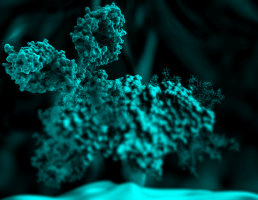
African-Americans and Africans who swapped their typical diets for just two weeks similarly exchanged their respective risks of colon cancer as reflected by alterations of their gut bacteria, according to an international study led by researchers at the University of Pittsburgh School of Medicine published online in Nature Communications.
Principal investigator Stephen O'Keefe, M.D., professor of medicine, Division of Gastroenterology, Hepatology and Nutrition, Pitt School of Medicine, observed while practicing in South Africa that his rural patients rarely had colon cancer or intestinal polyps, which can be a cancer precursor.
In the Western world, colon cancer is the second-leading cause of cancer death and African-Americans carry the greatest disease burden in the United States.
"The African-American diet, which contains more animal protein and fat, and less soluble fibre than the African diet, is thought to increase colon cancer risk," Dr O'Keefe explained.
"Other studies with Japanese migrants to Hawaii have shown that it takes only one generation of Westernisation to change their low incidence of colon cancer to the high rates observed in native Hawaiians. In this project, we examined the impact of a brief diet change on the colon in a controlled setting where we didn't have to worry about the influence of smoking and other environmental factors on cancer risk."
After assessment of their in-home diets, 20 African-American and 20 rural South African volunteers ages 50 to 65 were housed at a University of Pittsburgh site and at an African lodging facility respectively.
There they ate meals prepared by the researchers using ingredients and cooking techniques typical of the other group.
The team examined faecal and colon content samples, obtained during colonoscopy, of each volunteer at baseline and after the two-week study period.
Although the diet change was brief, each group took on the other's rates of turnover of cells of the intestinal lining, levels of fibre fermentation, and markers of bacterial metabolic activity and inflammation associated with cancer risk.
In particular, African-Americans experienced an increase in butyrate production, which is thought to play a key role in anti-cancer pathways.
The researchers also noted they removed intestinal polyps from nine of the African-American volunteers, but none were present in the Africans.
"We can't definitively tell from these measurements that the change in their diet would have led to more cancer in the African group or less in the American group, but there is good evidence from other studies that the changes we observed are signs of cancer risk," said co-author Jeremy Nicholson, Ph.D., of Imperial College London.
According to Dr O'Keefe, increasing the amount of fibre in the diet - from approximately 10 grams to more than 50 for African-Americans in the diet swap - likely led to biomarker changes reflecting reduced cancer risk, but eating less animal fat and proteins also could be helpful.
"These findings are really very good news," he said.
"In just two weeks, a change in diet from a Westernised composition to a traditional African high-fibre, low-fat diet reduced these biomarkers of cancer risk, indicating that it is likely never too late to modify the risk of colon cancer."
The World Cancer Declaration recognises that to make major reductions in premature deaths, innovative education and training opportunities for healthcare workers in all disciplines of cancer control need to improve significantly.
ecancer plays a critical part in improving access to education for medical professionals.
Every day we help doctors, nurses, patients and their advocates to further their knowledge and improve the quality of care. Please make a donation to support our ongoing work.
Thank you for your support.